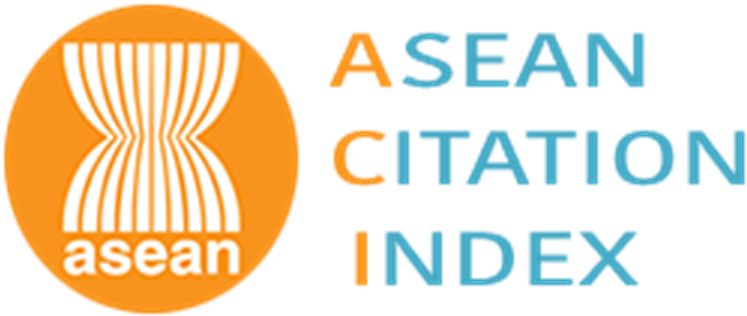รูปแบบการพัฒนาศักยภาพผู้ประกอบการวิสาหกิจชุมชนในกลุ่มจังหวัดภาคกลาง
Abstract
บทคัดย่อ
งานวิจัยนี้มีวัตถุประสงค์เพื่อศึกษาผลการประเมินศักยภาพผู้ประกอบการวิสาหกิจชุมชนในกลุ่มจังหวัดภาคกลางเพื่อศึกษาสภาพการดำเนินงานของผู้ประกอบการวิสาหกิจชุมชนที่ได้รับรางวัลวิสาหกิจชุมชนดีเด่นระดับประเทศและระดับจังหวัดภาคกลางเพื่อสร้างรูปแบบการพัฒนาศักยภาพผู้ประกอบการวิสาหกิจชุมชนในกลุ่มจังหวัดภาคกลางและเพื่อประเมินความเหมาะสมของรูปแบบและคู่มือการใช้รูปแบบการพัฒนาศักยภาพผู้ประกอบการวิสาหกิจชุมชนในกลุ่มจังหวัดภาคกลาง ประชากร คือประธานวิสาหกิจชุมชนในกลุ่มจังหวัดภาคกลาง 21 จังหวัด มีจำนวนทั้งสิ้น 7,256 คน กลุ่มตัวอย่างได้แก่ 1) ผู้ให้ข้อมูลหลักในการวิจัยเชิงคุณภาพ คือประธานวิสาหกิจชุมชนที่ได้รับรางวัลวิสาหกิจชุมชนดีเด่นระดับประเทศและระดับจังหวัดภาคกลาง 10 แห่งและกลุ่มผู้ทรงคุณวุฒิที่เข้าร่วมประชุมสนทนากลุ่ม 12 คนใช้การเลือกตามเกณฑ์ที่กำหนด 2) กลุ่มตัวอย่างที่ใช้ในการวิจัยเชิงปริมาณ คือผู้เชี่ยวชาญ/ประธานวิสาหกิจชุมชนในกลุ่มจังหวัดภาคกลาง จำนวน 120 คน ใช้วิธีการสุ่มแบบอย่างง่าย เครื่องมือที่ใช้ในการวิจัย ประกอบด้วย แบบสัมภาษณ์เชิงลึก และแบบประเมินสถิติที่ใช้ในการวิเคราะห์ข้อมูลประกอบด้วย ค่าเฉลี่ย ส่วนเบี่ยงเบนมาตรฐานและการวิเคราะห์เนื้อหาผลการวิจัยพบว่ารูปแบบการพัฒนาศักยภาพผู้ประกอบการวิสาหกิจชุมชนในกลุ่มจังหวัดภาคกลาง ประกอบด้วย 5 ปัจจัยหลัก ดังนี้ 1) ภาวะผู้นำ 2) ความรู้ความเชี่ยวชาญและการพัฒนาตนเอง 3) การจัดทำแผนวิสาหกิจชุมชน 4) การสื่อสารและการประสานงาน และ 5) คุณธรรม จริยธรรม โดยมี 23 ปัจจัยย่อย ได้แก่ (1) การควบคุมตนเอง (2) ความเชื่อมั่นในตนเอง (3) การตัดสินใจ (4) การมอบหมายงาน (5) การสร้างแรงจูงใจ (6) กฎระเบียบข้อบังคับวิสาหกิจชุมชน (7) การเงิน/การบัญชี (8) การบริหารการตลาด (9) การจัดการสินค้า (10) การเรียนรู้ตลอดชีวิต (11) การใช้เทคโนโลยีสารสนเทศ (12) การถ่ายทอดความรู้ (13) การกำหนดทิศทางและเป้าหมาย (14) การวางแผนการดำเนินงาน (15) การมีส่วนร่วมของสมาชิก (16) การประเมินผลและการติดตาม (17) การจัดทำแผนพัฒนาวิสาหกิจชุมชน (18) การประชาสัมพันธ์ข้อมูลข่าวสาร (19) การติดต่อประสานงานภายในและภายนอก (20) การสร้างเครือข่าย (21) ความรับผิดชอบต่อหน้าที่ (22) ความรับผิดชอบต่อชุมชน และ (23) จริยธรรมผู้ประกอบการวิสาหกิจชุมชน ตามลำดับผลการประเมินความเหมาะสมของรูปแบบและคู่มือการใช้รูปแบบการพัฒนาศักยภาพผู้ประกอบการวิสาหกิจชุมชนในกลุ่มจังหวัดภาคกลาง พบว่า โดยภาพรวมมีความเหมาะสมอยู่ในระดับมากที่สุด ทั้งรูปแบบและคู่มือการใช้รูปแบบ
คำสำคัญ: รูปแบบการพัฒนาศักยภาพ วิสาหกิจชุมชน กลุ่มจังหวัดภาคกลาง
Abstract
The purposes of this research were to : 1) evaluate the potential development model of small and micro community enterprise of central region, 2) study the operation of the entrepreneur community award for outstanding community, nationally and central provinces, 3) create a development capability of the potential development model of small and micro community enterprise of central region, and 4) evaluate the fit of the model and manual model of the potential development model of small and micro community enterprise of central region. Population included 21 provinces, a total of 7,256 people. The samples included : 1) the primary source in qualitative data was the presidents of Small and Micro Community Enterprise awarded for outstanding community at national level and central region province level, and a group of 12 experts to join the focus group derived from selected criteria, and 2) the sample for quantitative research included experts/ presidents of communities in the central provinces with the total of 120 samples selected by simple random sampling. The research instrument consisted of in-depth interviews and evaluation forms. The research statistics included arithmetic mean, standard deviation and content analysis. The results showed that the potential development model of small and micro community enterprise in central region consisted of 5 main factors : 1) leadership, 2) knowledge and self-improvement, 3) community planning, 4) communication and coordination, and 5), morality and ethics. The 23 sub-factors : (1) self-control, (2) confidence, (3) decision, (4) assignments, (5) motivation, (6) community regulations, (7) finance / accounting, (8) marketing, (9) product management, (10) lifelong learning, (11) information technology, (12) knowledge transfer, (13) direction and goals, (14) implementation plan, (15) involvement of members, (16) evaluation and monitoring, (17) community development plan, (18) public relations news, (19) Internal and external coordination, (20) networking, (21) duty responsibility, (22) community responsibility, and (23) ethics. The results of the evaluation for the model and user manual of the potential development model of small and micro community enterprise of central region showed the overall result was at very high appropriateness of both the model and the manual.
Keywords: Potential Development Model, Small and Micro Community Enterprise, Central Region
งานวิจัยนี้มีวัตถุประสงค์เพื่อศึกษาผลการประเมินศักยภาพผู้ประกอบการวิสาหกิจชุมชนในกลุ่มจังหวัดภาคกลางเพื่อศึกษาสภาพการดำเนินงานของผู้ประกอบการวิสาหกิจชุมชนที่ได้รับรางวัลวิสาหกิจชุมชนดีเด่นระดับประเทศและระดับจังหวัดภาคกลางเพื่อสร้างรูปแบบการพัฒนาศักยภาพผู้ประกอบการวิสาหกิจชุมชนในกลุ่มจังหวัดภาคกลางและเพื่อประเมินความเหมาะสมของรูปแบบและคู่มือการใช้รูปแบบการพัฒนาศักยภาพผู้ประกอบการวิสาหกิจชุมชนในกลุ่มจังหวัดภาคกลาง ประชากร คือประธานวิสาหกิจชุมชนในกลุ่มจังหวัดภาคกลาง 21 จังหวัด มีจำนวนทั้งสิ้น 7,256 คน กลุ่มตัวอย่างได้แก่ 1) ผู้ให้ข้อมูลหลักในการวิจัยเชิงคุณภาพ คือประธานวิสาหกิจชุมชนที่ได้รับรางวัลวิสาหกิจชุมชนดีเด่นระดับประเทศและระดับจังหวัดภาคกลาง 10 แห่งและกลุ่มผู้ทรงคุณวุฒิที่เข้าร่วมประชุมสนทนากลุ่ม 12 คนใช้การเลือกตามเกณฑ์ที่กำหนด 2) กลุ่มตัวอย่างที่ใช้ในการวิจัยเชิงปริมาณ คือผู้เชี่ยวชาญ/ประธานวิสาหกิจชุมชนในกลุ่มจังหวัดภาคกลาง จำนวน 120 คน ใช้วิธีการสุ่มแบบอย่างง่าย เครื่องมือที่ใช้ในการวิจัย ประกอบด้วย แบบสัมภาษณ์เชิงลึก และแบบประเมินสถิติที่ใช้ในการวิเคราะห์ข้อมูลประกอบด้วย ค่าเฉลี่ย ส่วนเบี่ยงเบนมาตรฐานและการวิเคราะห์เนื้อหาผลการวิจัยพบว่ารูปแบบการพัฒนาศักยภาพผู้ประกอบการวิสาหกิจชุมชนในกลุ่มจังหวัดภาคกลาง ประกอบด้วย 5 ปัจจัยหลัก ดังนี้ 1) ภาวะผู้นำ 2) ความรู้ความเชี่ยวชาญและการพัฒนาตนเอง 3) การจัดทำแผนวิสาหกิจชุมชน 4) การสื่อสารและการประสานงาน และ 5) คุณธรรม จริยธรรม โดยมี 23 ปัจจัยย่อย ได้แก่ (1) การควบคุมตนเอง (2) ความเชื่อมั่นในตนเอง (3) การตัดสินใจ (4) การมอบหมายงาน (5) การสร้างแรงจูงใจ (6) กฎระเบียบข้อบังคับวิสาหกิจชุมชน (7) การเงิน/การบัญชี (8) การบริหารการตลาด (9) การจัดการสินค้า (10) การเรียนรู้ตลอดชีวิต (11) การใช้เทคโนโลยีสารสนเทศ (12) การถ่ายทอดความรู้ (13) การกำหนดทิศทางและเป้าหมาย (14) การวางแผนการดำเนินงาน (15) การมีส่วนร่วมของสมาชิก (16) การประเมินผลและการติดตาม (17) การจัดทำแผนพัฒนาวิสาหกิจชุมชน (18) การประชาสัมพันธ์ข้อมูลข่าวสาร (19) การติดต่อประสานงานภายในและภายนอก (20) การสร้างเครือข่าย (21) ความรับผิดชอบต่อหน้าที่ (22) ความรับผิดชอบต่อชุมชน และ (23) จริยธรรมผู้ประกอบการวิสาหกิจชุมชน ตามลำดับผลการประเมินความเหมาะสมของรูปแบบและคู่มือการใช้รูปแบบการพัฒนาศักยภาพผู้ประกอบการวิสาหกิจชุมชนในกลุ่มจังหวัดภาคกลาง พบว่า โดยภาพรวมมีความเหมาะสมอยู่ในระดับมากที่สุด ทั้งรูปแบบและคู่มือการใช้รูปแบบ
คำสำคัญ: รูปแบบการพัฒนาศักยภาพ วิสาหกิจชุมชน กลุ่มจังหวัดภาคกลาง
Abstract
The purposes of this research were to : 1) evaluate the potential development model of small and micro community enterprise of central region, 2) study the operation of the entrepreneur community award for outstanding community, nationally and central provinces, 3) create a development capability of the potential development model of small and micro community enterprise of central region, and 4) evaluate the fit of the model and manual model of the potential development model of small and micro community enterprise of central region. Population included 21 provinces, a total of 7,256 people. The samples included : 1) the primary source in qualitative data was the presidents of Small and Micro Community Enterprise awarded for outstanding community at national level and central region province level, and a group of 12 experts to join the focus group derived from selected criteria, and 2) the sample for quantitative research included experts/ presidents of communities in the central provinces with the total of 120 samples selected by simple random sampling. The research instrument consisted of in-depth interviews and evaluation forms. The research statistics included arithmetic mean, standard deviation and content analysis. The results showed that the potential development model of small and micro community enterprise in central region consisted of 5 main factors : 1) leadership, 2) knowledge and self-improvement, 3) community planning, 4) communication and coordination, and 5), morality and ethics. The 23 sub-factors : (1) self-control, (2) confidence, (3) decision, (4) assignments, (5) motivation, (6) community regulations, (7) finance / accounting, (8) marketing, (9) product management, (10) lifelong learning, (11) information technology, (12) knowledge transfer, (13) direction and goals, (14) implementation plan, (15) involvement of members, (16) evaluation and monitoring, (17) community development plan, (18) public relations news, (19) Internal and external coordination, (20) networking, (21) duty responsibility, (22) community responsibility, and (23) ethics. The results of the evaluation for the model and user manual of the potential development model of small and micro community enterprise of central region showed the overall result was at very high appropriateness of both the model and the manual.
Keywords: Potential Development Model, Small and Micro Community Enterprise, Central Region
ISSN: 2985-2145





